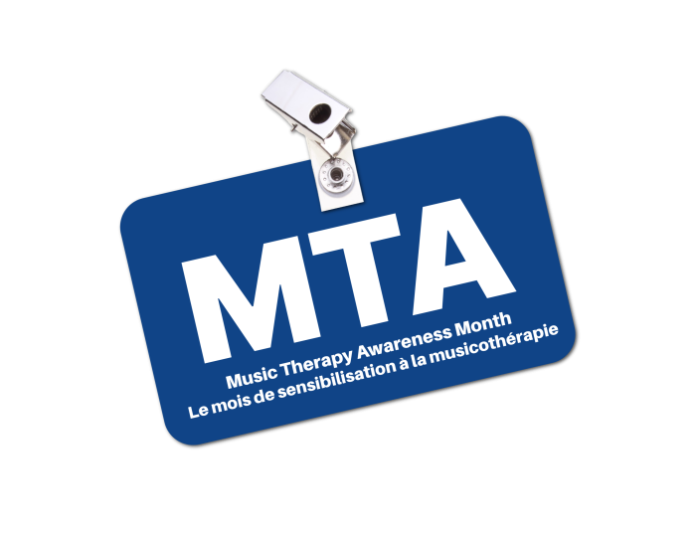March is Music Therapy Awareness Month – the perfect time to shine a spotlight on the transformative, healing power of music therapy, as well as on how and when to access the services of a Certified Music Therapist (MTA).
During COVID restrictions, online music therapy was able to help isolated patients reduce loneliness and feel connected, like Natasha Scoria, who was recovering from the removal of a brain tumor. “The music made me feel good, made me comfortable. Sometimes you forget where you are and that you don’t have your family close,” she said.
Music Therapists in Canada are working in a variety of settings including medical centres, long-term care settings and schools all across the country, helping people improve skills, decrease stress, or feel strengthened through during a transition or crisis. Music therapy can alleviate physical symptoms, support coping and wellbeing, and enable people to process their spiritual and existential concerns. Music Therapy often involves counselling coupled with intentional listening to live and/or recorded music while discussing the personal relevance of song lyrics, as well as more active engagement in music experiences such as writing songs, singing, or playing instruments.
In a recent review of research studies evaluating music therapy in cancer care, Friederike Köhler and colleagues found that even a single session of music therapy had positive effects on psychological well-being. Patients receiving curative treatment reported reductions in depression and anxiety as a result of music therapy; whereas those receiving palliative care reported improved quality of life and reduced pain.
And just last year, Canadian pop star Shawn Mendes acknowledged the power of music therapy by donating $1 million to the Hospital for Sick Children (SickKids) in Toronto, launching the “Wonder of Music” music therapy program at the hospital. The program will include songwriting, customized lullabies, and the creation of original songs set to the recorded rhythm of a patient’s heartbeat. “Music has made such a profound impact in my life and is no doubt a form of therapy to me. I can only hope the Wonder of Music Program will help SickKids patients, families, and staff benefit from its power as well,” Mendes told Billboard.
Anyone who appreciated or engaged in music when they were growing up can intuitively understand why music therapy is playing an increasingly important role in fostering social, emotional, and academic skills among school children. The potential impact on student mental health if teachers and music therapists came together to create and facilitate a program is also being studied, and the mental health impact of a well-developed program is an exciting prospect.
Music therapy can help in wide variety of situations, to promote health, wellbeing and quality of life. Harnessing the healing power of music therapy is now mostly about gaining a greater public understanding of when and how to access this impactful therapy. Several music therapists are available to speak on the topic of music therapy, explaining various approaches and methods supported by research as well as by anecdotes from their own areas of practice and expertise.







